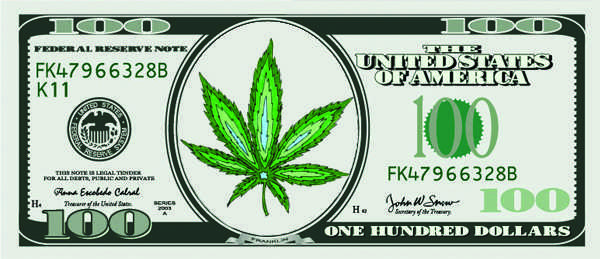Erin Alexis Goldman
Senior Staff Writer

If someone had told me I would be giving rapper Tauheed Epps, better known as 2 Chainz, a standing ovation at some point in my life, I wouldn’t have believed it. But on Jan. 13, the living caricature of a news anchor Nancy Grace invited the rapper and prominent weed user on her HLN TV show to debate marijuana legalization. By the end of the segment, Epps might as well have sprinkled Grace onto a Zig- Zag, rolled it up and sparked it right there.
The crux of Grace’s argument relied on playing clips of irresponsible parents forcing children as young as two years old to partake in the herbage.
Not to be deterred by such an obvious ploy, Epps offered a perfect retort to a clip showing a young mother giving her infant daughter marijuana: “Anybody that loves their kids definitely knows not to put them in harmʼs way, and that’s what she did. She may have mental issues. This may be something deeper than a joint.”
Well said, Mr. Chainz. Well said. This entire debate goes deeper than a joint.Congress passed its current ban on marijuana more than 40 years ago.
And now, in a country where 23 states and the District of Colombia have legalized medicinal marijuana, four states have legalized recreational use, and Congress has ended the federal government’s prohibition of medical marijuana, it’s high time the federal government rethinks the legality of the reefer.
Among weed’s greatest potential benefits is the positive impact on the U.S. economy through tax revenues, direct law enforcement expenditures and prison spending.
Legislation could also lead to the creation of new jobs in many fields and possibly boost tourism, not to mention the surely skyrocketing sales of Visine. At the national level, Prohibition (of alcohol) cost the federal government a total of $11 billion in lost tax revenue and more than $300 million to enforce, according to pbs.org.
Today, the average annual trade in marijuana is estimated a t $113 billion, which represents nearly $45 billion in taxes slipping through our fingers, Harvard economist Jeffrey Miron said.
In fact, weed is such a moneymaker at the state level that, according to the International Business Times, Colorado might end up having to pay as much as $30 million in tax refunds back to the public.
Simply put, Colorado made too much money on the new weed tax. Need more evidence that legalizing weed is the right move? According to a report obtained by The Huffington Post, “legal marijuana is the fastest-growing industry in the U.S., and if the trend toward legalization spreads to all 50 states, marijuana could become larger than the organic food industry.”
Think about that the next time you spend $40 on “artisanal grains” that you can’t even smoke. As for Grace, she can denounce weed all she wants, but as always, the proof is in the profits. And judging from 2014, it looks like the stoned age is upon us.






